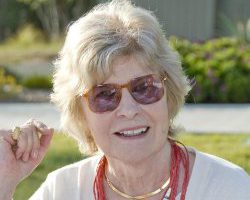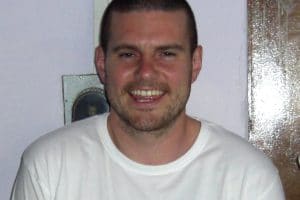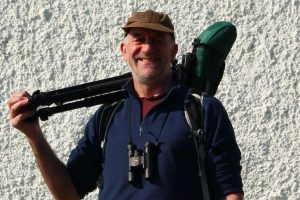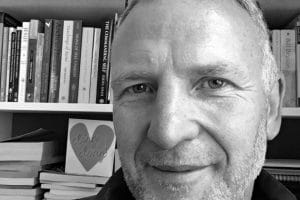
Kay Killingsworth
Kay Killingsworth was Secretary to the Trustees from 1984 to 1993, when she became Honorary Vice-President, a non-Trustee position.
Kay retired from the Food and Agriculture Organization in 2002, after 33 years during which she held various positions, including that of Secretary-General of the 1996 World Food Summit, and finally as Assistant Director-General and Special Advisor on World Food Summit Follow-up.

Chris Madine
Trustee
Chris has been an Arkleton Trustee since 2010. He was first involved with the Trust in 2007 as a John Higgs Awardee. Since then he has undertaken research for the Trust following the Chuckchee – Barefoot project. He is currently employed by Newcastle University as the OPAL Community Scientist.

Steve Evison
Trustee
Steve is a natural resource manager and explorer with a fascination for the natural world. He has travelled and worked all over the world including longer periods living in Alaska and Tanzania. Brought up exploring the rivers and marshes of the Norfolk Broads in England, Steve moved to Plymouth to do a degree where he spent much of his time exploring the moors and the sea, including qualifying as a diver. Since then he has been based mainly in North Wales (where he also did an MSc in Forestry) with shorter periods working in Scotland, the north of England and a number of years overseas.
His work has always focused on people and the natural world and he has worked in practical conservation and contracting, nature reserve warden, forester, lecturer (including running an MSc module for Oxford Uni for a number of years and supporting a degree course development in Stellenbosch), trainer and development worker (overseas).
Over the last 20 years he has been running the company he established (www.r4c.org.uk) specialising in community and stakeholder engagement. Within the company as well as his obvious subject area, Steve tends to lead on major organisational reviews, innovative participatory engagement and often works as a critical friend to senior personnel.
More recently Steve has been spending time running a smallholding and eco-venue; founding and developing a member owned national co-operative for wilder camping in the UK (www.nearlywildcamping.org) ; and most recently developing Nearly Wild Exploration (www.nearlywild.org) , an ethical company specialising in helping people re-connect with nature.
In his spare time Steve does many outdoor pursuits (including mountain biking, climbing, canoeing, caving, surfing, sailing, and many others) in search of natural world experiences and is a keen artist (specialising in his own style of pen and ink watercolour). For Steve outdoor pursuits are a means of travel, as well as providing some fun, adrenalin and time out to clear the head!

Barnaby Peacocke
Trustee
I am an independent aid consultant who has spent over 25 years working with international teams to help poor rural and urban people improve the food security, livelihoods and resilience of their communities including during crises. My field experience comes from time spent in over 10 countries in South and Southeast Asia, and 20 countries of Sub-Saharan Africa. My personal experience is that even in the face of incredible challenges, life goes on. Personal dignity and self-respect come from enabling disadvantaged people to take the next step. A timeline of some examples of my work includes:
- Participatory action-research supporting small-scale farmers across semi-arid areas of East, West and Southern Africa with the University of Reading (1990-95);
- Leadership of Action Contre la Faim’s international food security programme across 22 countries which focused on supporting communities as they transitioned out of the need for immediate humanitarian assistance and transitioned toward rebuilding and diversifying their livelihoods (1997-2000);
- National and international programme development, fundraising, and monitoring and evaluation support to with Practical Action (previously ITDG) supporting communities to adopt, assess and adapt technologies to ensure they were appropriate to local needs (2000-16), and;
- Independent evaluations of the UN World Food Programme and Food and Agriculture Organisation exploring the effectiveness of their support to host nations in Africa, with follow-up assistance to ensure learning is integrated into their national and global strategic plans and programmes (2016-18).